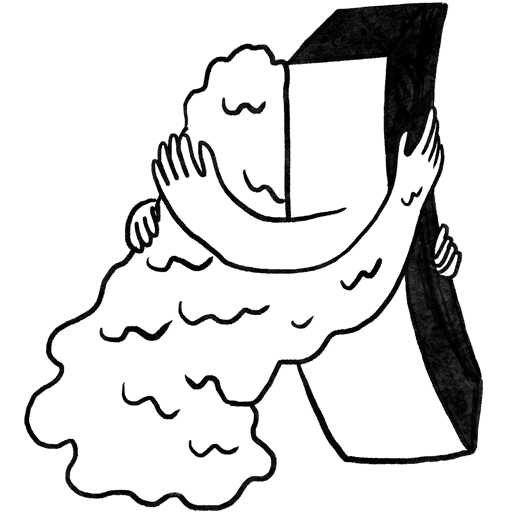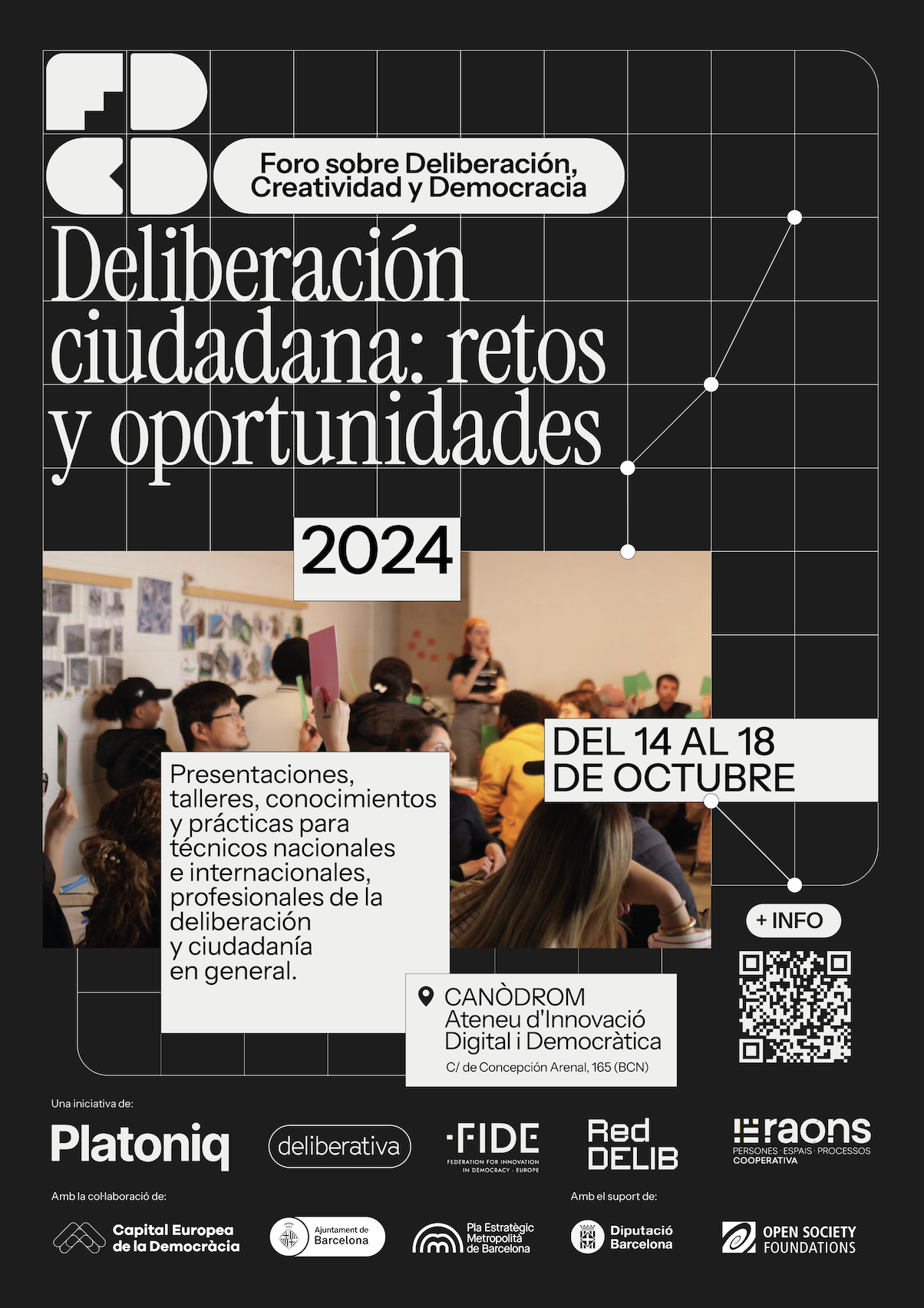Futures
School of Creativity and Democracy: connecting affections, reimagining democracy
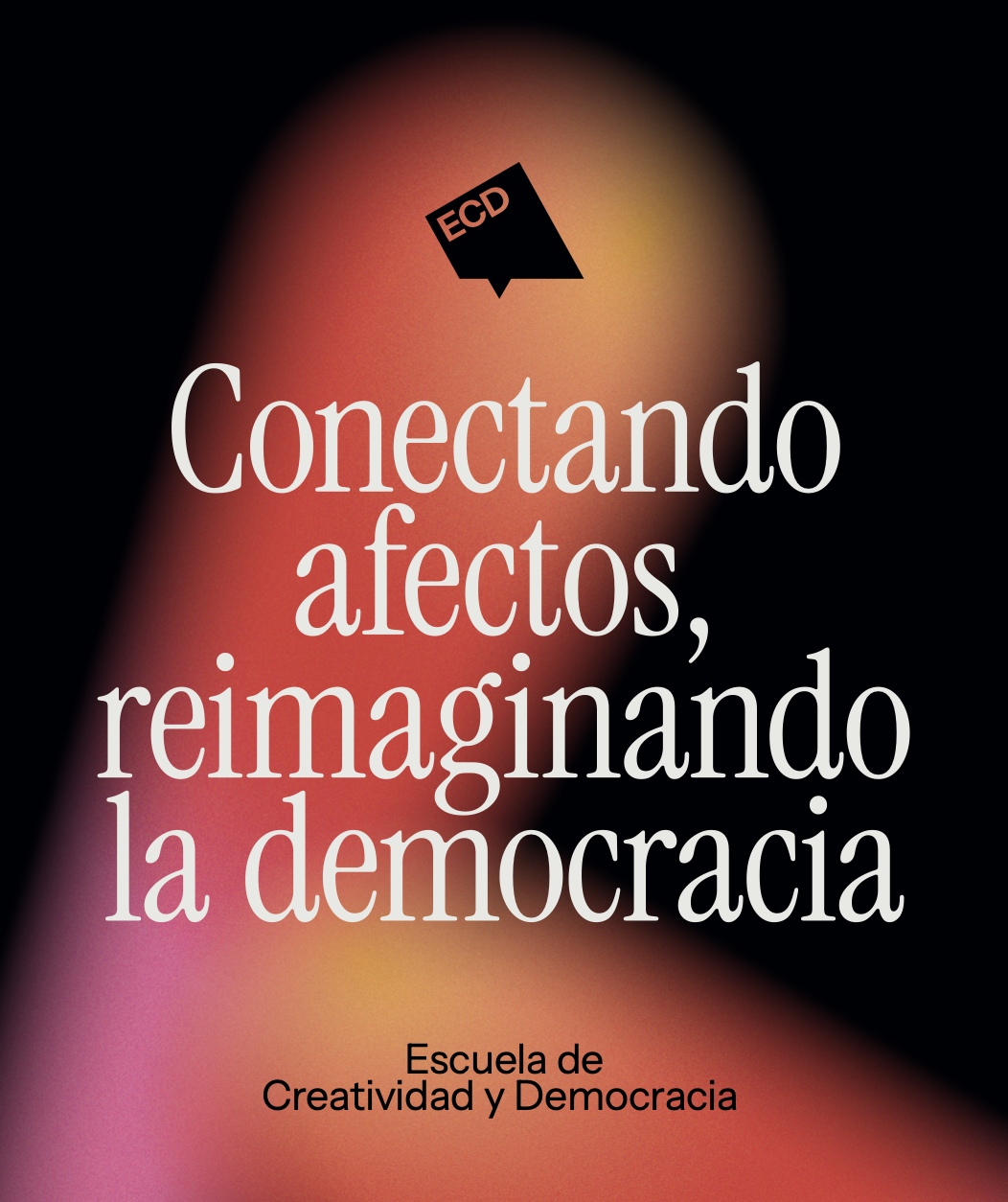
87% of young people do not feel listened to by politicians. However, 92% are very concerned about social problems. What should we do? We cannot allow a whole generation to be disconnected from public affairs. What future would that lead us to?
In a context of disaffection, polarisation and widespread disinformation, we need to find new ways to involve young people and make them capable of influencing public administrations.
We know that young people continuously participate in political processes, albeit in different and new ways: signing petitions, conscious consumption, graffiti, with their statements on networks, as well as through flash mobs and street performances, protests or demonstrations.
But how do we bridge the gap between the street and the institutions?
We present the School of Creativity and Democracy, a training itinerary to prepare new professionals of deliberation in the participatory elaboration of public policies, taking into account intersectional care and relying on methodologies inspired by the performing and visual arts.
At the School, we are committed to incorporating creative methodologies into citizens’ right to political participation, in order to provide young people with new tools to decide on their future.
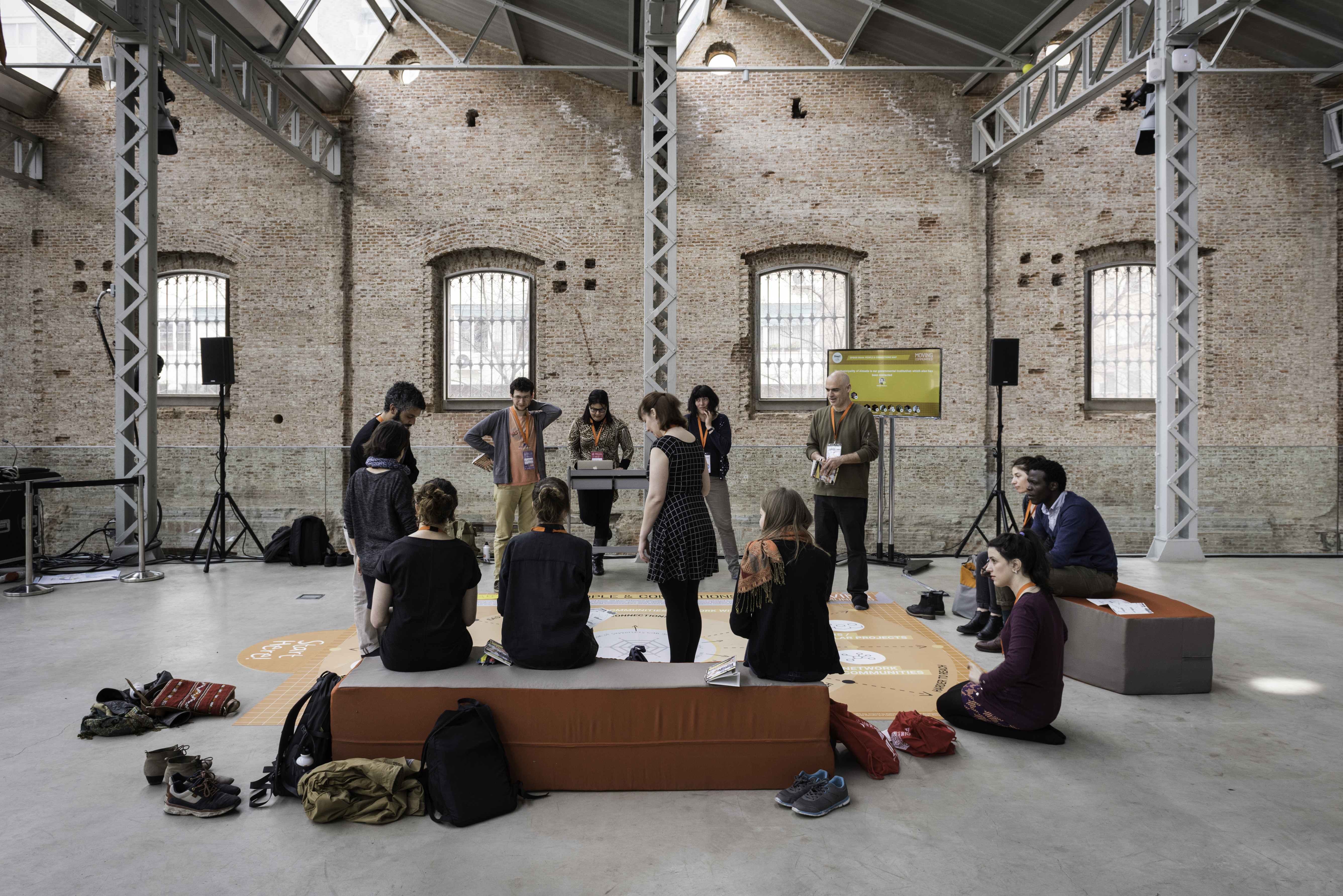
We believe that dialogues and deliberative assemblies are a way of accommodating and channelling this creativity, capacity and interest in tackling public and political problems, but we need to remove the corset they are in and make them more strategic, more effective and, why not, also more fun.
Four professional profiles, one same path
If we understand participation as the indicator that shows us the democratic health of a country, the degree of activation of its citizens and the commitment of public institutions in matters that affect society as a whole, we will realise that, although for a couple of decades we have been surfing what has come to be called the deliberative wave of democracy, much more needs to be done to convince the new participants in public life that it is possible to recover the power of citizenship and take the reins of their political commitment.
Our assumption is that by understanding the local context and giving ourselves time to build relationships of trust with local actors and using participatory process to support existing grassroots action and policy agendas, we can help embed participatory policymaking
To this end, the School proposes a number of common knowledge modules and specialised modules, as well as internships, tests and prototypes. The common modules deal with the skills and methodology needed to explore the issues that affect us all, existing and upcoming forms of participation, and how we are able to make collective decisions.
From there, four specialised itineraries are opened up for those interested in facilitation, digital participation, creative research and citizen advocacy, four professional fields capable of activating the collective potential of a society in the form of participatory processes.
Disruptive methodologies
The School aims to: teach how the participatory phenomenon can be translated into audiovisual format (and if it is possible to activate it through its language); how to create, manage and evaluate participation projects; how to design online participation processes that bring together thousands of people; and how to analyse and draw conclusions from the whole deliberative process while being aware of the implications of being part of the same experience.
All of this through disruptive methodologies, such as legislative theatre, timid resistance, de-naming techniques or the elaboration of participatory ethnofanzines.
Open processes and to be opened
The entire training strategy is designed to be applied and, in this sense, there are several processes that the School will make available to the community.
In addition to a series of agreements with public institutions and entities that allow participants to get involved in active institutional processes, such as the Citizen’s Convention on Housing or the Strategy for a Longer Society and a Fuller Life, of the Generalitat de Catalunya.
At the local level, the facilitation of the Didactic Unit, ‘Democracy and Creativity’, in schools and institutes, after the first pilot at the Instituto x in Madrid. At regional level, participation in the Mindset Revolution project to improve public policies on intersectional mental health in young people, with the University of Birmingham and the Kasal de Joves de Roquetes. At the national level, the School collaborates with the Spanish Civic Assembly in its efforts to create an assembly of sorted citizens in Europe.
I would be interested in a document that addresses racism, anti-racism, the repeal of the law on foreigners, the elimination of CIEs, the colonial legacy in Spanish cities, the decolonisation of the curriculum, and so on. But once all this has been collected, I would like it to go through a political process so that it has legal force.
And finally, a project that is necessary but no less difficult to carry out, the drafting of the Migrant Constitution, the document that will take the intersectional view of the Spanish reality to the Congress of Deputies.
Participation as an internal dynamic
The participants of the School will have their own podcast dedicated to deliberation, through which interviews will be conducted with participation professionals and citizens’ initiatives will be invited.
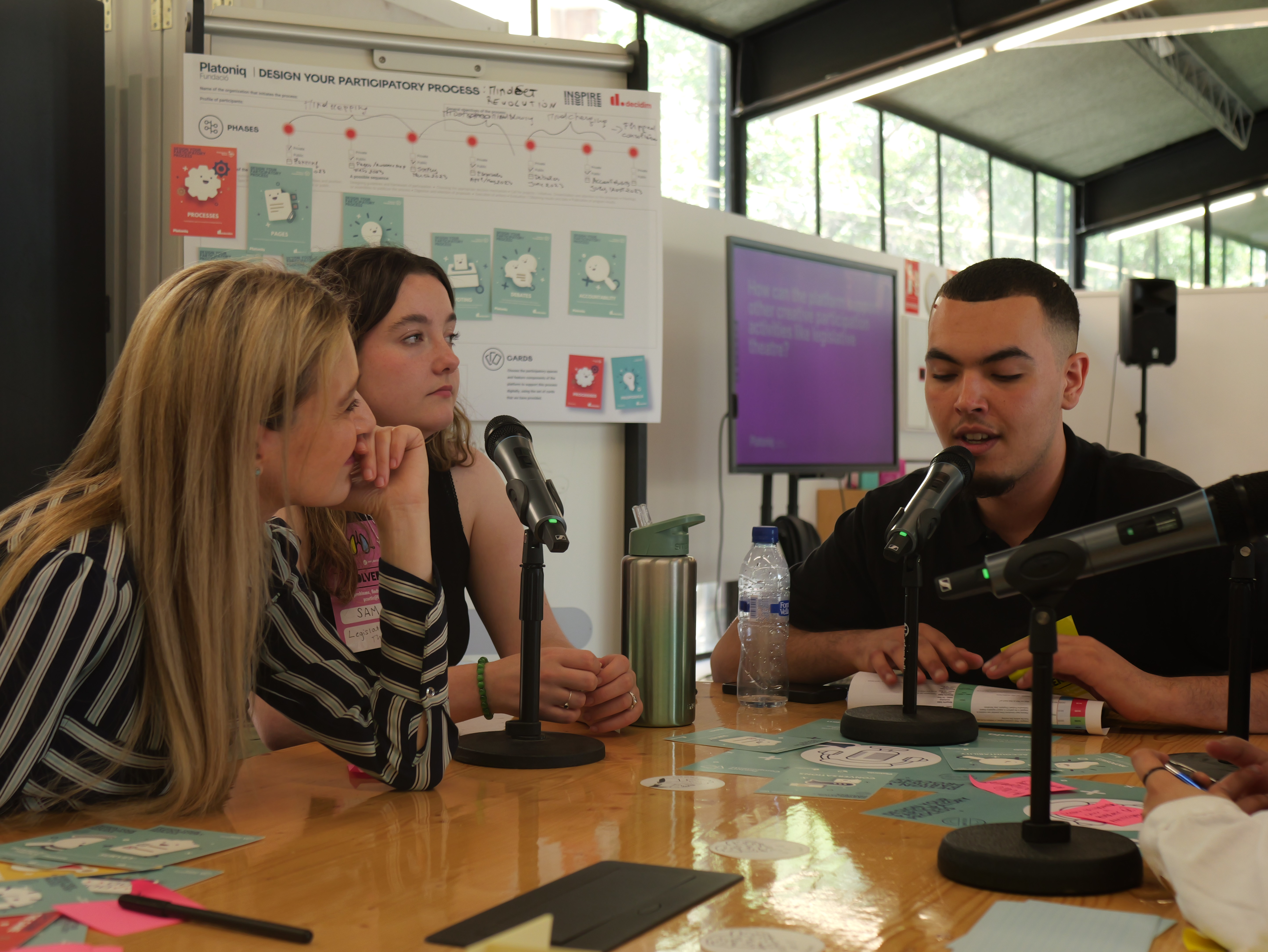
In this way, an open network will be established with civil society in which to share and think together about the major current social issues.
The School will also provide a digital platform for citizen participation from which to carry out simulations related to the issues dealt with during the training and to carry out real participation initiatives.
What do we aspire to?
The School aspires to be a bridge to organisations and institutions linked to participation and an opportunity to become part of them and, in doing so, to transform them.
From facilitation: to be part of a new generation of dialogue facilitators, capable of handling the intricacies of debate, aspiring to depolarisation and able to create safe spaces.
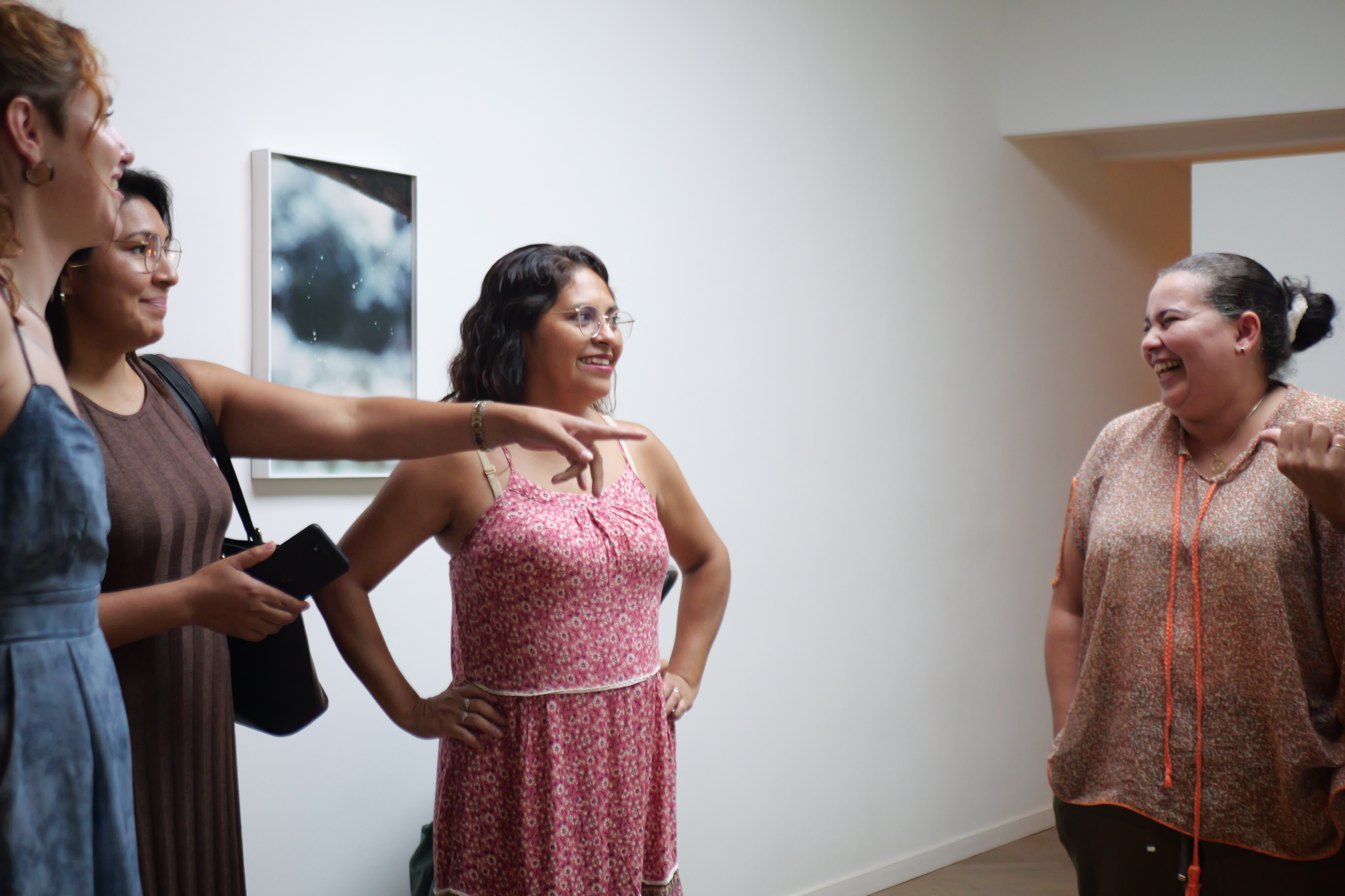
As developers of digital participation processes: to be able to design and carry out a strategy that harmonises the opinions of thousands of people in order to finally come up with common, complex and realistic recommendations.
From creative research: to be able to take part in European project consortiums, collaborating through teaching in academic institutions and research grants, developing new forms of investigative journalism.
And from citizen advocacy: supporting or initiating political advocacy campaigns based on pieces that trigger social debate, either from the beginning of participatory processes, or to dynamise their conclusions more effectively.
A community in movement
In short, a community in movement, which, through research and practice, contributes new political experiences of personal and collective emancipation, offering a new way of feeling democracy.
First steps
As the first activity of the School, we have designed, in collaboration with the University of Birmingham and a team of young people from Manchester, three webinars entitled: Empowering young people’s voice in politics through the arts, digital participation and legislative theatre.
This series of webinars is designed to equip young people, youth workers and youth, youth workers and educators with the tools and skills to meet these tools and skills to address these challenges, actively participate in policy-making and ensure that their voices are heard. their voices are heard. By combining creative methods creative methods such as theatre, art and digital activism, we aim to strengthen the democratic strengthen the democratic participation of all young people, especially the most vulnerable.
21 November: Intersectional Activism: The use of digital tools to address housing, climate tools to address housing, climate, mental health and human rights. (SIGN UP)
27 November: Creative Methods for Reclaiming Youth Voice in Research and Evaluation (SIGN UP)
28 November: The transformative power of legislative theatre (SIGN UP)
This set of webinars are funded by: ALDA (European Association for Local Democracy) and Open Society Foundations.
